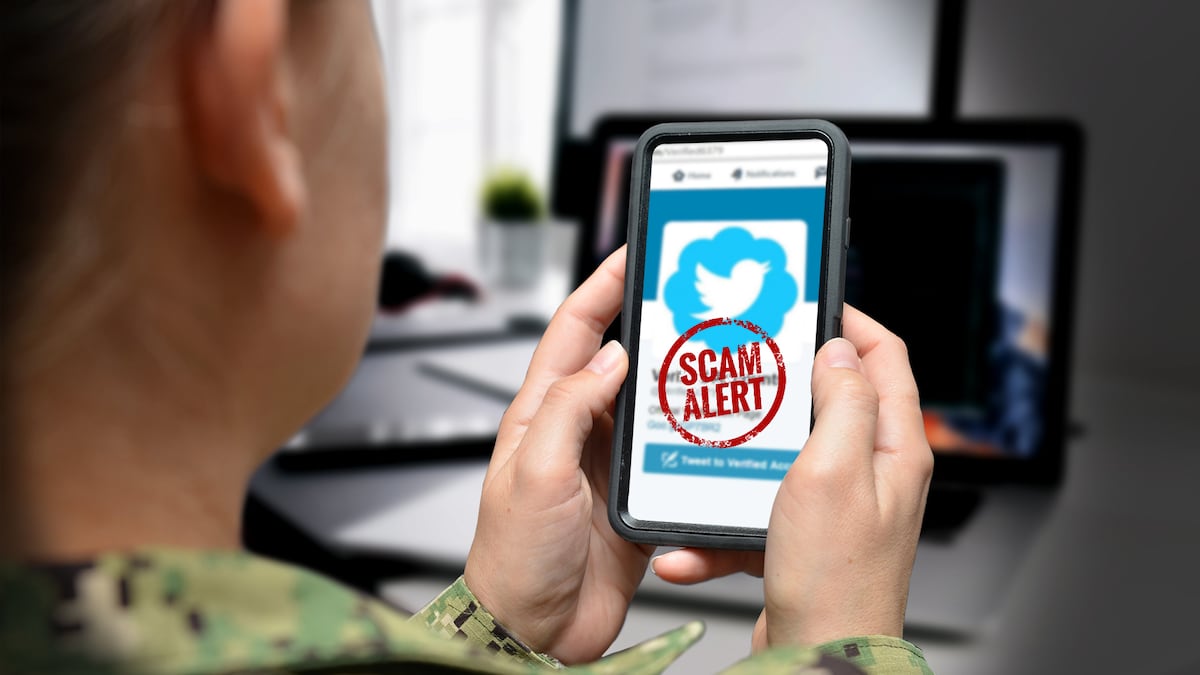Financial scams pose a significant threat to military personnel and veterans, as highlighted by retired Navy Rear Admiral Brian E. Luther, president and CEO of Navy Mutual. Despite his extensive experience in financial matters, Luther nearly fell victim to a sophisticated scam, underscoring the growing complexity of fraud targeting service members.
Since taking the helm at Navy Mutual in 2020, Luther has witnessed a concerning trend: his family experiences targeted scams approximately every two years. This alarming pattern prompted Navy Mutual to take proactive measures, continually warning military families about the latest scams to safeguard their financial futures. According to the Federal Trade Commission (FTC), military consumers reported losses totaling $584 million to fraud in 2024, a staggering figure that reflects the vulnerability of this community.
Luther shared his personal encounter with a scam on LinkedIn last year, aiming to raise awareness that even seasoned professionals can be targeted. “We’re trusting people,” he noted, emphasizing that scammers often exploit the trust and vulnerability of their victims. His near-miss began with a phone call from someone claiming to be from his credit union, citing a fraudulent charge related to his wife’s recent trip to New York.
The scammers escalated their narrative with increasing urgency, attempting to convince Luther that immediate action was necessary. “I let them walk me all the way to, ‘We need to log into your account and change the password,’” he recounted. It was only when he questioned their legitimacy that they abruptly ended the call. Upon contacting his credit union, he learned there had been no record of any such communication.
As a precaution, the credit union’s fraud department swiftly changed all of Luther’s account numbers to prevent any potential access by the scammers, who had successfully spoofed the institution’s phone number. This tactic is a common method employed by fraudsters, who manipulate caller IDs and email addresses to appear as trusted entities.
Luther advises service members to exercise caution when receiving unsolicited communications regarding their accounts. He urges them to terminate any conversation and directly contact their financial institution using a known number. “If you inadvertently share information, secure all your accounts immediately,” he warned, noting that even a small amount of personal data can lead to further exploitation.
The types of scams faced by military families are diverse, ranging from online job offers and education scams to deceptive messages about packages and even romance fraud. The FTC outlines several warning signs of a scam: impersonation of reputable organizations, claims of urgent problems or prizes, pressure to act quickly, and specific payment requests, such as cryptocurrency or gift cards.
To help mitigate these risks, service members are encouraged to discuss scams openly with their families and peers. Older veterans, in particular, should be reminded to be cautious before responding to unexpected communications, as isolation can increase vulnerability to financial scams.
Luther highlighted the potential consequences of falling victim to scams, which can lead to significant financial stress and jeopardize a service member’s security clearance and career. The emotional toll can be compounded if victims have to deal with identity theft, a situation that may take years to rectify.
If someone discovers they have been scammed, immediate action is crucial. The FTC provides guidance on how to protect oneself and report fraud incidents. Luther emphasizes that being scammed is not a reflection of one’s character but rather an unfortunate event that can happen to anyone in today’s digital landscape.
“This is a persistent threat,” Luther stated. “It’s a clear and present danger to your financial health, and you need to prepare yourself.” As military families continue to navigate these challenges, awareness and proactive measures will be essential in combating the ever-evolving tactics of financial fraud.





































































